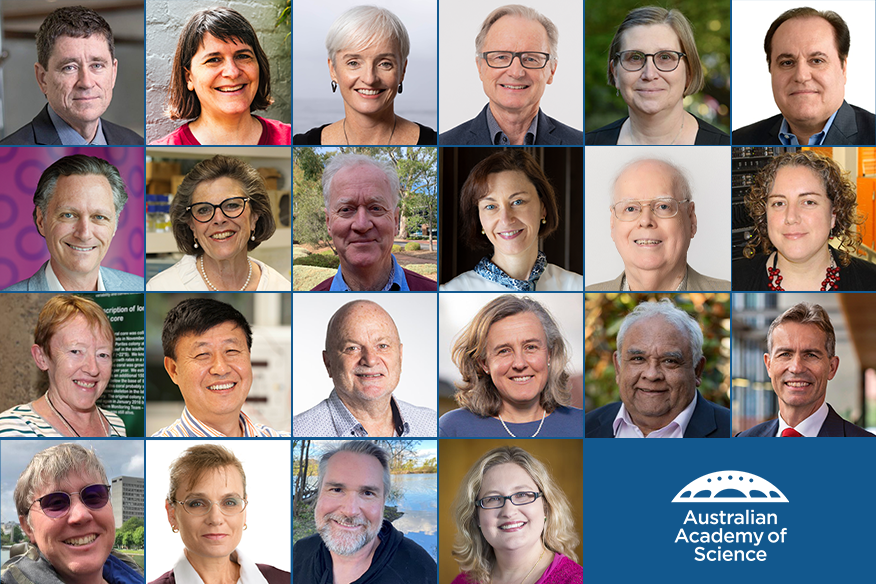CMS members Dr Jess Melbourne-Thomas presented the talk "Challenges and solutions for Antarctic marine biodiversity under climate change", and Prof Marcus Haward presented the talk "Marine Biodiversity in the Southern Ocean: Lessons from CCAMLR" at the panel.
Article about Dr Beth Fulton inclusion as an Australian Academy of Science Fellow in recognition of her work in marine ecological modelling, published in CSIRO News.
Read article here.
Plenary presentation at the World Fisheries Congress, 20-24 September 2021, Virtual
Plenary presentation at the World Fisheries Congress, 20-24 September 2021, Virtual
In this podcast, they discuss :
• Gretta’s passion for effective science communication and community engagement
• Gretta’s involvement in various projects; Curious Climate, Future Seas and Redmap
• The immense scope and scale of the latest IPCC sixth assessment report
• The increased certainty of climate science findings
• The key takeaways from the latest IPCC report
• Relevant findings and adaptation limits for the Australasian region
• The need to focus on disaster resilience in addition to recovery
• The difference between mitigation and adaptation actions, and why we need both
• The importance of grounded hope and individual actions
Find podcast here
Is the climate problem so big, you don't know where to start, or what to do? Do you want to contribute to the sustainable future of our planet? Find out from our experts how you can make a difference in this online seminar.
Host:
Gretta Pecl, Director, Centre for Marine Socioecology and ARC Future Fellow, University of Tasmania
Speakers:
• Professor Martin Grimmer, Associate Provost and Professor of Marketing, University of Tasmania
• Hannah Moloney, Author and Director, Good Life Permaculture
• Martin Exel, Managing Director, Seafood Business for Ocean Stewardship, and Advisor, Austral Fisheries
Huge congratulations to our Deputy Director Dr Beth Fulton who has been inducted as a Fellow into The Australian Academy of Science in recognition for her pioneering marine ecosystems modelling work.
Beth has a multidisciplinary background in mathematics, marine biology and ecology, and combined these skills to develop Atlantis, one of the world’s first ecosystems models to consider the marine environment, the food web, and the people as one. This tool has been used in fisheries management in many countries around the world for the last two decades.

Programme
May 3 (6.00-8.00 UTC)
Starting at 20:00 of May 2 HST (Honolulu), 8.00 CEST (Berlin), 11.30 IST (Delhi), 16.00 AEST (Melbourne)
Asta Audzijonyte (Nature Research Center, Lithuania & University of Tasmania, Australia): Introduction and day one recap
John Lynham (University of Hawai'i at Mānoa). FishNet: species classification and size regression using AI and a dataset of one million fish
Catarina Silva (Nature Research Center, Lithuania): Developing open source tools for automated fish species identification for recreational fisheries
Jaume Piera (Spanish National Research Council): Integrating AI tools in Citizen Observatories for potential monitoring of fishes: the case of Cos4Cloud project
Dadong Wang (Data61, CSIRO, Australia): AI-based video analysis for electronic monitoring of fisheries operation
Yanyu Chen (University of Tasmania, Australia): Automated sex classification and size estimation for Giant Grabs
Xabier Lekunberri (AZTI, Basque Research and Technology Alliance): Identification and measurement of tropical tuna species in purse seiners catches using computer vision and deep learning
Discussion
Programme
May 2 (14.00-16.00 UTC)
Starting at 7.00 PDT (Vancouver), 10.00 EDT (New York), 16.00 CEST (Berlin), 19.30 IST (Delhi)
Asta Audzijonyte (Nature Research Center, Lithuania & University of Tasmania, Australia). Introduction, anglers, citizen science and fish size data
Daniel Pauly (University of British Columbia, FishBase, Canada). Citizen science data and FishBase
Christian Skov (Technical University of Denmark). Fangstjournalen: a citizen science program for anglers
Sean Simmons (MyCatch and Angler's Atlas, Canada). Citizen science in fisheries research: angler generated data, validation techniques and opportunities for machine learning
Lisa Kellogg (Virginia Institute of Marine Science, USA). RecFish: engaging recreational anglers as community scientists: Overview
Harshil Shah (DXFactor): RecFish: engaging recreational anglers as community scientists: Technical details
Nathaniel (Than) Hitt (U.S. Geological Survey): Deep learning for stream fish conservation using images for individual recognition
Discussion
2021 has been another challenging year for many of us, however, despite these ongoing difficulties we are delighted to see that CMS continues to go from strength to strength in both research and post graduate training.
Thank you to our wonderful affiliated researchers, students, stakeholders and other supporters for your efforts in making 2021 a successful year for CMS. Not only has your generosity and enthusiasm enriched our collective efforts, but the contributions and outcomes are being realized across a broad spectrum of activity, relevant at local, regional and global scales.
Download report here.